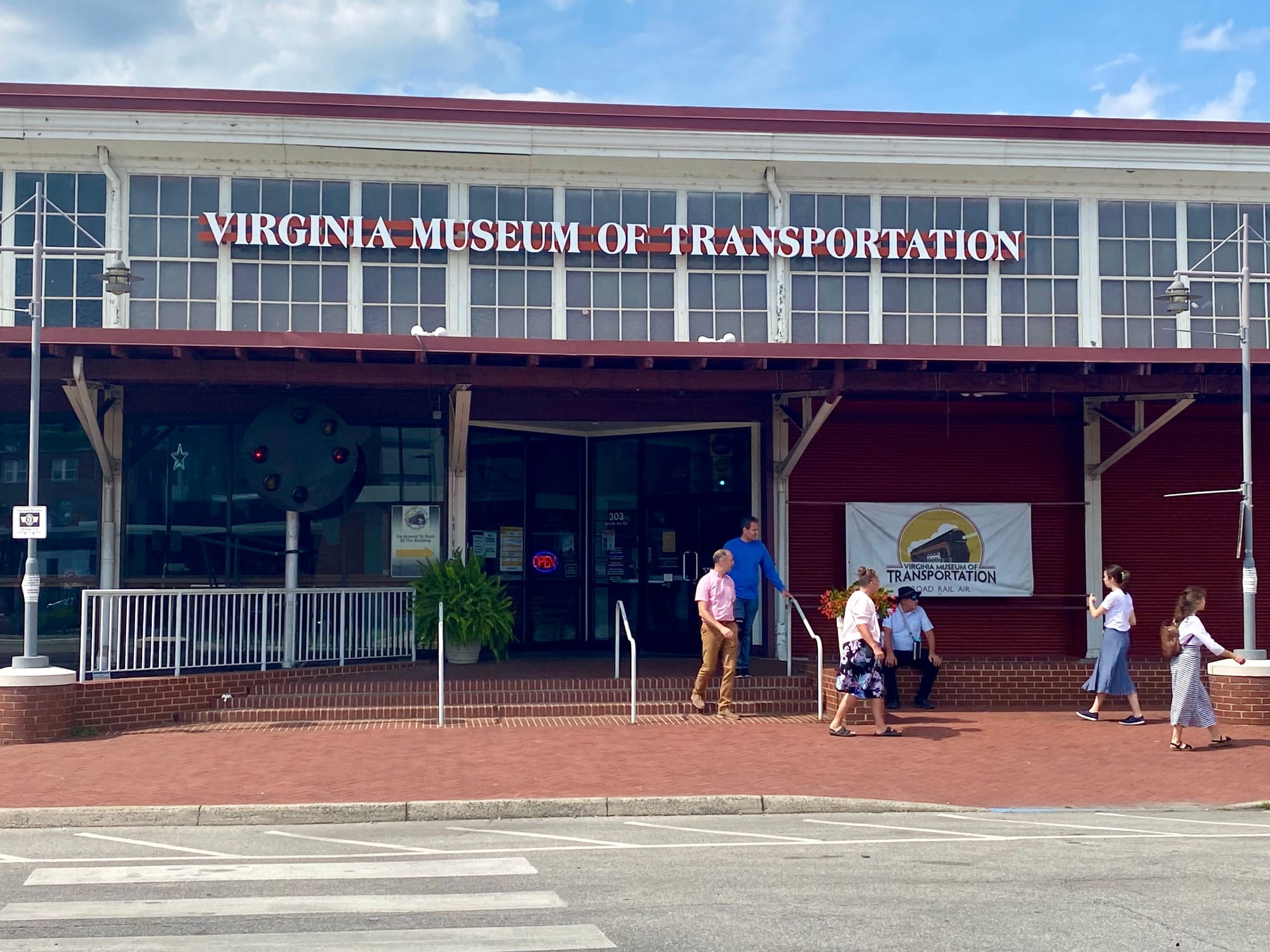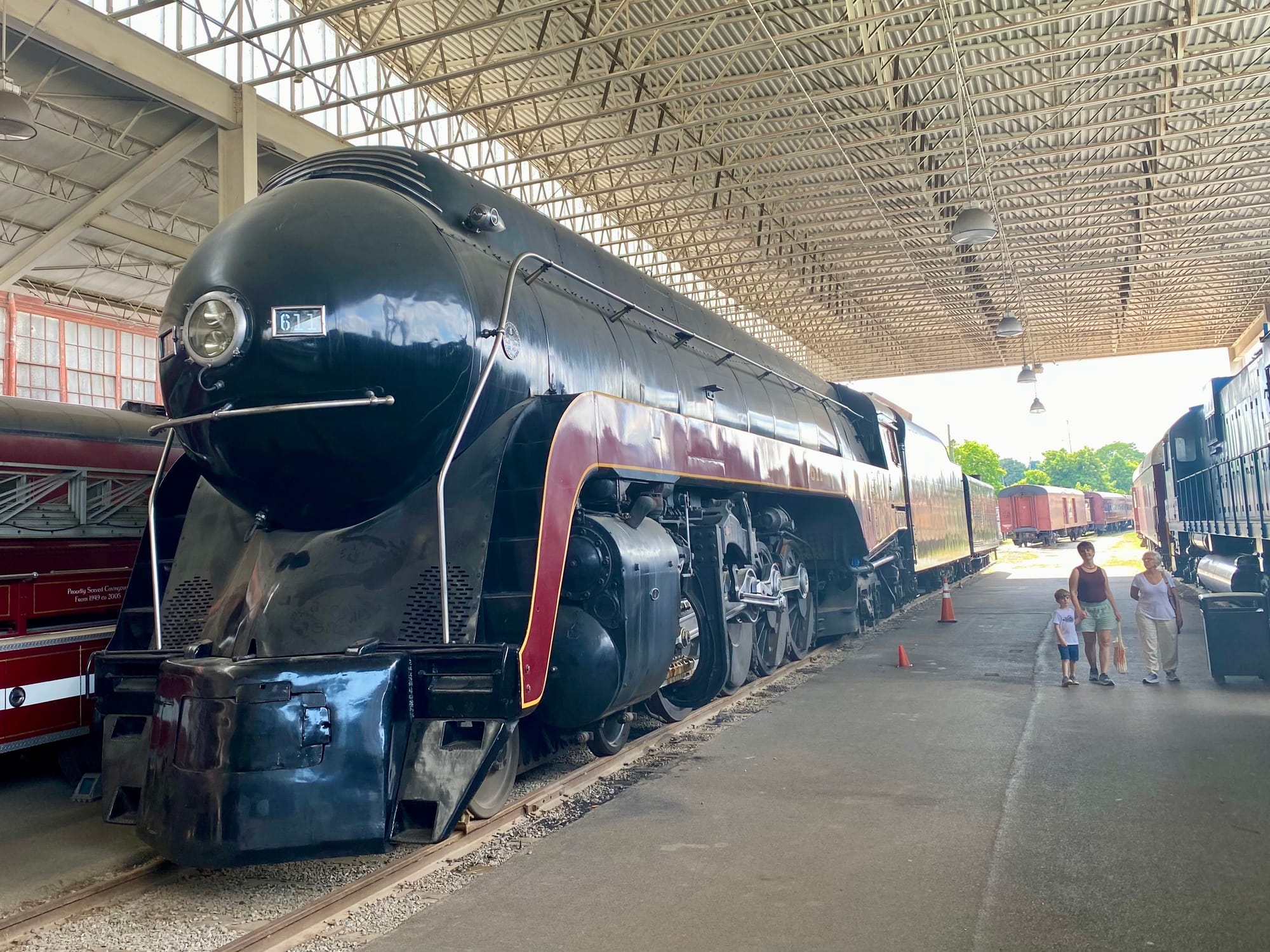'Unfounded': Virginia Museum of Transportation Says Probe Finds Nonprofit Accounted for State Grant Money
Some board members who resigned in June said they remain skeptical that the museum is in good hands.

Roanoke’s Virginia Museum of Transportation says a four-month internal investigation of its finances disputes concerns from former board members about the nonprofit’s spending.
A law firm hired by the museum said allegations from board members who resigned at its June meeting were “unfounded” and that accountants concluded the museum “had appropriately complied with its own internal procedures, had properly utilized and accounted for all grant funds, and is generally in a healthy position financially.”
“We are doing the right thing here, and money’s getting spent the way it should be,” Ken Lanford, the board president, said at a meeting earlier this month.
The museum hired Gentry Locke Attorneys on July 10, a month after six board members resigned, some citing concerns over the financial health and direction of the museum. Board members had clashed over decisions related to last fall’s excursion of the historic Norfolk & Western J-Class No. 611 steam locomotive. Some who left also cited unease over how museum leaders have spent part of a $500,000 state grant meant for improvements to the building and exhibits.
John Danyluk, an attorney at Gentry Locke, wrote in an Oct. 24 letter to the museum’s board that the law firm reviewed bank statements, balance sheets, meeting minutes and other records.
“After thoroughly reviewing all of this documentation, Investigators determined that there were no identifiable issues or concerns with respect to VMT’s handling, spending, or accounting of state grant funds,” Danyluk wrote.
Danyluk said Gentry Locke had also hired the Winchester-based accounting firm Yount, Hyde, and Barbour to review the museum’s finances.
The accountants’ five-page report said the museum had properly spent and tracked 78 expenditures of grant money, totaling $175,812 as of June 30. Money went toward enhancing exhibits, electrical and plumbing upgrades, and education programs.
By the end of June, the museum had $1.4 million in cash and investments, according to the accountants’ report, “leaving adequate funds to fulfill the remaining grant expenditures of $324,188.” The Virginia Department of Historic Resources says those funds must be spent by the end of the year.
“We appreciate the faith that has been given to us by many. There are many who have not had faith,” Tom Cox, executive vice president of the board, said at a Nov. 2 member meeting. “Facts are for open-minded people who wish to consider those facts. People who wish to have their own preconceived notions and try to find ways to support a narrative will continue to do that, unfortunately.”
Some board members who resigned in June said they remain skeptical that the museum is in good hands.
“It’s encouraging to see the VMT attempt to clean things up, but it feels like a reaction to controversy, not a true move forward,” Will Ardis, one of the former board members, said in an email.
Ardis said he thinks the museum would have been better served by a financial audit from an outside party, as opposed to a review by a law firm the museum has worked with before.
“While I by no means wish to question the integrity or ability of the organization they used, I believe a true outside source with less prior and future financial incentives may have inspired more confidence,” Ardis wrote.
Gavin Miller, another board member who left, said the investigation was lacking and called for “a full and independent audit” led by an entity such as the city or state.
Cox said the museum paid “in excess of $20,000” for Gentry Locke’s investigation.
“We were all very shocked and dismayed by what happened,” Cox said of the mass resignations over the summer. Cox said those six board positions have since been filled.

Several board members who resigned had devoted time and money to launching 611 passenger excursion trips last fall. They felt other board members and museum leaders downplayed the trips’ financial success. More than 20,000 passengers boarded the famed 611 in the Rockbridge County town of Goshen for a roundtrip trip over five weekends in October and November.
This spring, board members decided not to pursue another two years of excursion trips, citing agreement from two other railroads, including Norfolk Southern, which had been fending off a takeover bid. Current board members described that as a surprise that cost the museum money, while former board members maintain it was a responsible decision with broader buy-in.
Cox said an official with the Federal Railroad Administration met with museum leaders in July to go over concerns about the 611. That official “reiterated to us that ‘no exceptions were found,’ which meant that the locomotive met all necessary standards for operation, so there were not issues,” Cox said.
Cox said the nonprofit is moving forward, at a time when the museum has been trying to become an official state agency. A state feasibility study on that effort is expected this month.
“When people make an allegation that there's financial malfeasance, there's nothing else you can do but conduct an independent investigation,” Cox said. “There are always differences of opinions and issues … but the bottom line is … there’s nothing missing, nothing misappropriated.”
In July, Danyluk, the Gentry Locke attorney, sent The Rambler a “cease-and-desist” letter, threatening to sue the publication if it continued publishing former board members’ concerns.
Danyluk acknowledged that The Rambler accurately reported what former board members had said.
“Taken together, however, the article misleads readers and leaves a very real impression that the VMT has mismanaged its finances,” he wrote. “Most importantly, the article suggests that VMT has not properly accounted for state grant funds. This suggestion is provably false and inaccurate, and any implication to the contrary is defamatory per se.”
Ten days after Danyluk sent The Rambler the cease-and-desist letter, Gentry Locke hired the accounting firm YHB to review the museum’s finances.
“We are required to be independent of Virginia Museum of Transportation and to meet our other ethical responsibilities, in accordance with the relevant ethical requirements related to our agreed-upon procedures engagement,” YHB wrote in its report.

